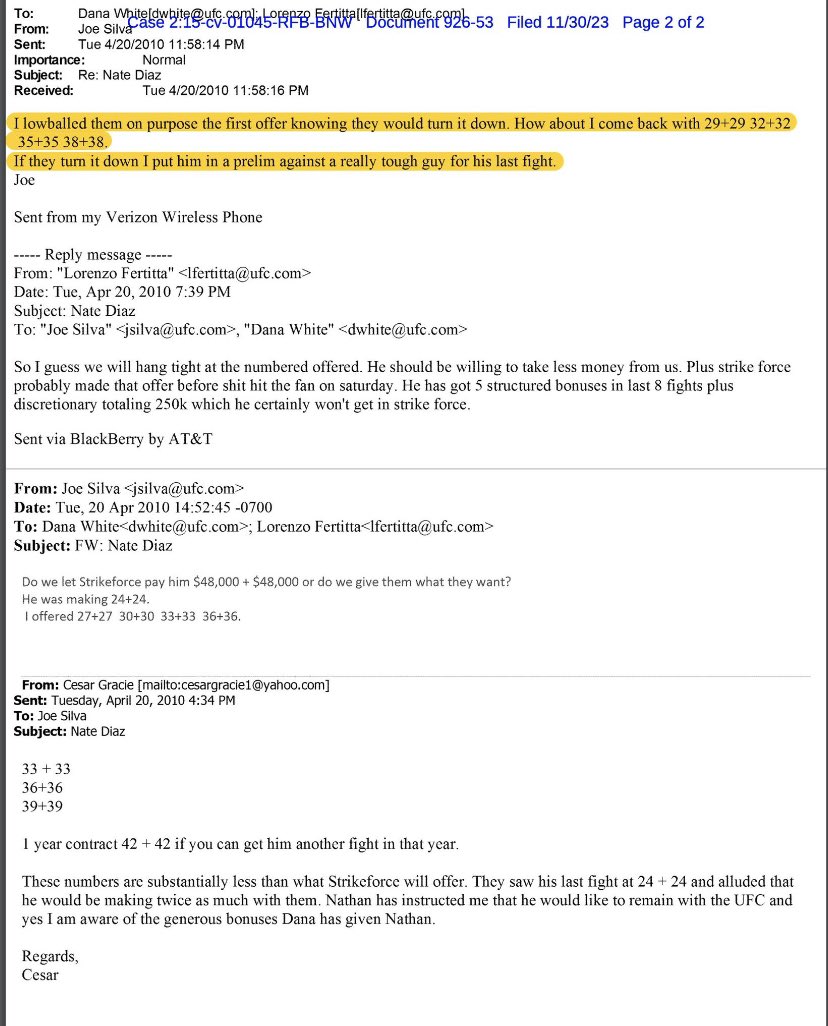Former UFC sensation Nate Diaz has long advocated for better pay and benefits during his tenure in the organization. Despite his persistent efforts, it wasn’t until his bouts with Conor McGregor that Diaz began to witness substantial financial gains.
Recently surfaced emails have exposed the UFC’s purported attempts to undermine Diaz after he turned down a contract offer he deemed as undervalued.
To put things in perspective, the UFC is facing allegations in a Class Action lawsuit about unfair market monopolization and underpayment of its athletes.
The leaked emails offer insights into the strained association between Diaz and the UFC. Notably, Diaz turned down many contract offers from the UFC in order to pursue chances outside of the company.
While the UFC eventually parted ways with Diaz, they strategically matched him against undefeated sensation Khamzat Chimaev for his final bout. Although the leaked emails date back to 2010 and might not directly relate to the Chimaev negotiations, they underscore Nate Diaz’s consistent dissatisfaction with the UFC’s compensation strategies.
In an email exchange, matchmaker Joe Silva suggested a well-known UFC tactic. He stated: “If they turn it down, I put him in a prelim against a really tough guy for his last fight.”
As the antitrust case unfolds, journalist John S. Nash from Bloody Elbow has been leaking emails among UFC executives. These shed light on the complexities of Diaz’s contract negotiations and the broader compensation issues within MMA.
A startling email allegedly from former UFC CEO Lorenzo Fertitta has emerged, showing the intricate discussions regarding Nate Diaz’s compensation. Fertitta’s email (dated April 20, 2010) to Joe Silva and Dana White outlined the UFC’s stance on Diaz’s contract. Fertitta emphasized the potential for Diaz to accept a reduced payout.
Fertitta highlighted Diaz’s history of earning five structured bonuses in his last eight matches. This was in addition to a fixed figure totaling 250k—a package that Strikeforce was unlikely to match.

